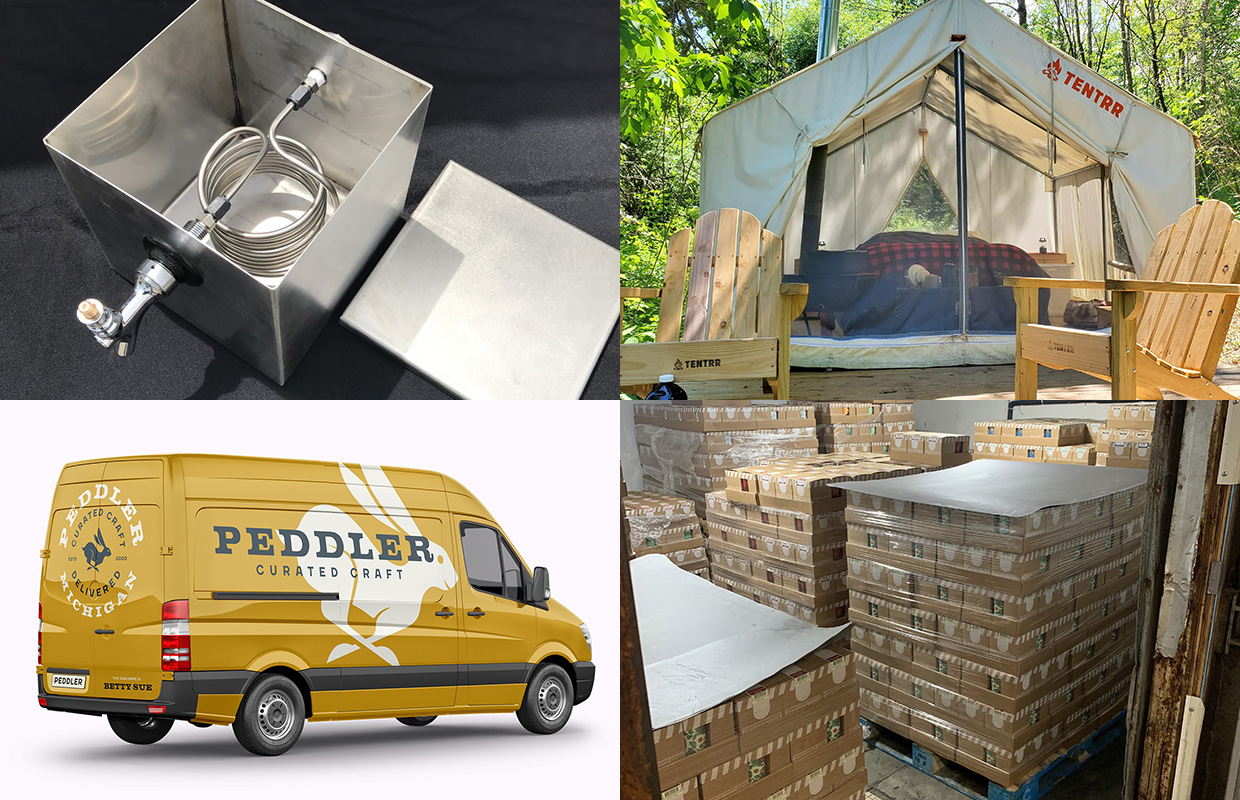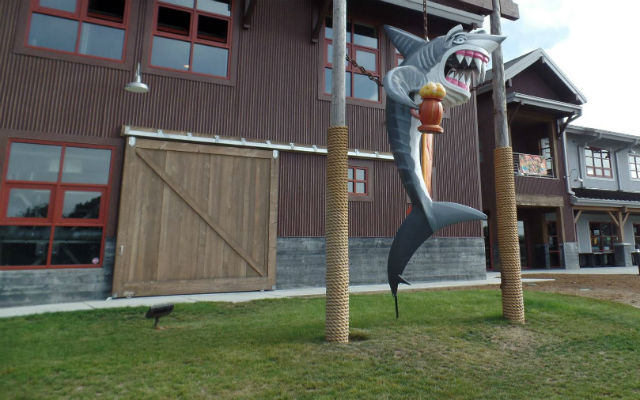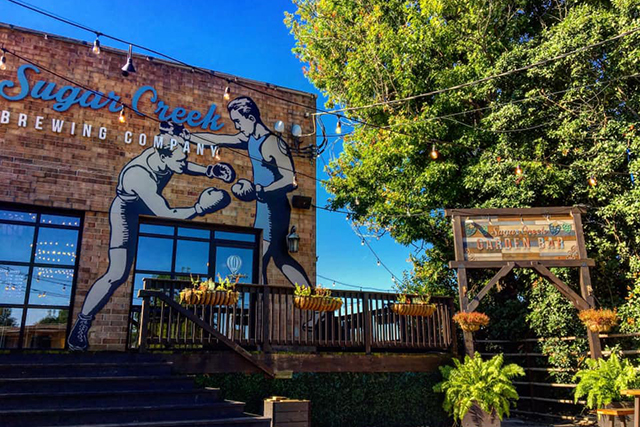
Due to the pandemic, finding new revenue streams has been a priority for breweries. Although a lot of breweries have turned to developing food service or a new beer sales stream, other breweries across the country have pursued solutions that are even more creative. Many such solutions have been in place for a few years, showcasing the ingenuity that helps some brewery owners supplement income and diversify product and service offerings.
Draft Line Cleaning:
Co-owner and General Manager of Bent River Brewing, Nick Bowes has really found ways to use the tools the brewery already has in place and the skills at their disposal.
Now — this may not be allowed in some states due to three-tier laws — but for the Illinois brewery, using its draft cleaning chemicals and equipment while offering the service to any area bar or restaurant in a 70-mile radius is something that it has been doing for a few years.
“I would say we’re in over half of all the licensed liquor establishments in our area,” Bowes said. “We have an employee going in there once every couple of weeks and they can be privy to what is on tap, and they can share with [the beer seller] what new things Bent River might be up to.
“It gets us building that relationship with potential draft beer customers right away. That’s obviously helped us on the other side of our business as well.”
Another side gig Bent River has is manufacturing jockey boxes, a tank tapper (pictured), and counter-pressure bottle fillers through its 3 Broke Brewers company.
“We have a 12-ounce bottling line but we were wanting to get into being able to do some smaller batch runs of bombers and whatnot,” Bowes said. “It seemed like there really wasn’t a value price/entry-level unit. So we got together with a friend of ours who’s a fabricator. We got to thinking that as the three of us, there’s a need for this product out there. We’ve been selling a handful of those units over the course the last seven or eight years.”
Cold Storage Rental:
East Vancouver’s Container Brewing had an opportunity fall into its lap and as Dan Webster said — tongue-in-cheek — it entered the ‘dynamic world of cold storage’ with its Burton Storage company about a year ago.
”While there are other options for cold storage, the idea behind Burton is that it is simply cold storage, no other hidden costs, and includes full 24/7 access to its members,” he said. And with the location of its being close to many area breweries, it was close and unlike other cold storage companies, Webster said Burton doesn’t ding a customer every time they need access to their product.
“Generally they won’t allow you to pick simply a flat or 4, but only a full pallet,” he said. ”Many of those companies are also logistics companies that really want you to use their delivery services too, and we’re not touching that.
”For smaller breweries, this is a win, as most are doing self distro and now they can store more beer, offsite, and still continue self-distribution accessing from a very flexible space.”
Glamping & Event Space:
Located in a touristy part of New York — the Finger Lakes Region — Seneca Lake Brewing, which specializes in cask ale in its taproom has made use of its 20-acre property. Seneca added an event space to its pub to allow larger events that can be safely spaced out and “glamping sites” that have been a real hit, said co-owner Bradley Gillett. The glamping units sold out in 2020.
“We always saw that there was going to be a big market on this lake for accommodation,” Gillett said. “I’ve got various friends that own accommodation in the area and they just have not got enough capacity. Some point in the future, having the ability to at least offer some accommodation here … is definitely again going to give people something that they’re looking for and something that’s needed in the area.”
Glamping is the just first step. Gillett envisions building into the side of the hill along the Seneca Lake to construct ‘Hobbit-Homes’ for patrons to rent.
A pole barn on the brewery’s campus became a project to keep Gillett occupied early in the pandemic and now, with the indoor space completed, an additional 1,600 square feet patio is being constructed along with the ability to add tents for weddings and much larger affairs.
“All these things come into the whole big picture and my mentality is: Beer is good, beer is great, beer is solid,” Gillett said. “But in an area like this, beer is only going to get you so far. Yes, you can do all of these great things by adding new beers to the picture. You can do beer clubs, you can do all of these elements surrounding beer. But ultimately, people are looking for diversity. And they’re looking for a multitude of different things that they can get in one centralized location. And hopefully, that’s what we’re kind of offering at this point.”
More than beer delivery:
Eastern Market Brewing is more than beer and founder Dayne Bartscht feels like he has become something of a logistics manager for the vast amount of incubators the brand has birthed since opening in the summer of 2017. Along with opening a second brewery incubator — Ferndale Project — the parent company has delved into coffee shops, donuts, pizza … and Peddler.
READ MORE: The Ways Eastern Market Works at Being Something for Everyone
Already the largest self-distributing brewery in Michigan, Eastern Market launched Peddler to be a delivery service by working with local businesses near both the Eastern Market location and the Ferndale Project building and letting consumers purchase products from those companies as well as from the brewery to be shipped by using the brewery’s delivery trucks that they already had in use.
“I think there’s a ton of efficiency, which a lot of us wouldn’t have realized,” Bartscht said. “If you’re already going somewhere, adding stops only adds like 15 minutes to the route.
“You can add 10 or 20 spots, and still have the same number of employees for about the same amount of time. So that’s part of the reason that we’ve really made a big bet on our Peddler service is because we’ve realized that we can use the existing team and just make it more efficient.”
Peddler has the software to integrate with its ordering system, and it optimizes routes for employees while customers get text alerts, and they can follow the driver on a map.
“I thought it would be cool to continue post-pandemic but now customers would be upset if we didn’t keep doing this post-pandemic,” Bartscht said, “so it’s definitely become a viable business that I’ve had on my radar but it would probably not come to fruition if we hadn’t been in a pandemic.”




Be the first to comment